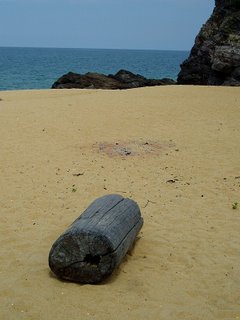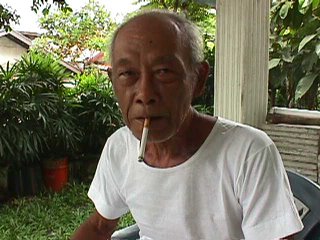Strong medicine
You learn something new every day.
Stare decisis – Latin for ‘to stand by things decided’ – is a cool phrase with a big stick, as I found out. In the laws of our land, as with many other societies, stare decisis is a key doctrine based on the principle that when a point has been made by decision, it sets a precedent. This precedent shall be respected and honoured in any subsequent cases.
Its aim is this: This policy . . . ‘is based on the assumption that certainty, predictability and stability in the law are the major objectives of the legal system; i.e., that parties should be able to regulate their conduct and enter into relationships with reasonable assurance of the governing rules of law’. (Moradi-Shalal v. Fireman's Fund Ins. Companies (1988) 46 Cal.3d 287, 296)
Federal Court Judge Augustine Paul pulled that phrase out Thursday when dissing his colleague Gopal Sri Ram of the Court of Appeal. Justice Paul mentioned this in a written judgment over the Metramac-Fawziah Holdings case.
The Star reports:
“Justice Paul said that although Justice Sri Ram was correct in saying that the Federal Court had made the wrong decision in Lam Kong Co Ltd v Thong Guan Co Pte Ltd and Capital Insurance Bhd v Aishah Manap & Anor, he was not the right authority permitted by law to express such an opinion.
“As both cases are judgments of the Federal Court he (Justice Sri Ram) is bound to follow them whether he agrees with them or not.
“The stand taken by him is in blatant disregard of the doctrine of stare decisis, particularly the need to comply with this fundamental rule of the common law,” he said.
Justice Paul, in predictable fashion, goes on to mention another point which forms the paradox to the doctrine.
“However, in the written judgment, Justice Paul agreed that both the cases of Lam Kong Co Ltd and Capital Insurance had been wrongly decided.
In the two cases, the Federal Court had ruled that any interim decision or ruling by the Court of Appeal made pending or before the end of proceedings cannot be appealed to the Federal Court.
Justice Paul said the Federal Court now did not agree with the ruling of former Chief Justice Mohamed Dzaiddin Abdullah in the Lam Kong case that this was done to “filter against unnecessary appeals.”
Here’s the dilemma. Granted that the courts are run by humans, fallible as we are, mistakes will be made. There will be wrong decisions. If stare decisi is to be upheld in its purest form, we’re in trouble. Who rights the wrong?
While it is true stare decisi forms a key doctrine in law, its exactitude is also one of the most debated topics in the courts of many countries. So potent is its content, the best minds of the law are wrestling to manage it from abuse. (Here's one good essay.)
Yet some, I believe, clamour for it as a convenient weapon to achieve an agenda. It is an animal instinct: If it’s there, why not use it to serve us?
Lately, the government has been emitting strong signals to toe the line. We’ve read about Sharir and the ridiculous Umno Whip. The message – forget conscience, toe the line. On Sunday morning, the police used force and aggression against demonstrators to the fuel and electricity hikes at KLCC. The message – go home, change your lifestyle, toe the line.
Augustine Paul’s criticism of Gopal Sri Ram is a weak one. It was a cheap shot that reeks of masters and servants and the stink of politics invading the sanctum of the judiciary. I read it as a prepping up and dressing down of the eventual decision to come on the Metramac-Fawziah case.
Thanks to incompetents, we’ve lost our balance of right and wrong. We’ve allowed fools to smash our lamps of truth. It is okay to be a cheat. You know, close one eye.
How else do you explain that over at Sipadan, one of the most unique marine ecosystems around – after a contractor’s illegal barge ripped apart a section of corals and exposed suspicious building contracts and deals probably with the government – the State Tourism, Culture and Environment Minister Chong Kah Kiat comes on the news saying the contractor has apologized so there will be no penalty imposed, just a cleanup fee. Fuckwits.
Seems like the wheels of deceit are spinning happily. In fact they’ve have been equipped with new all-weather tyres. Clearly, when one resorts to strong medicine – from citing stare decisis to police force – it illustrates a lack of faith in the body system to regulate its own health. It deems that a critical and thinking public, one that demands accountability and fairness, is a fever that needs fierce control.
They forget there’s such a thing as overdose.


